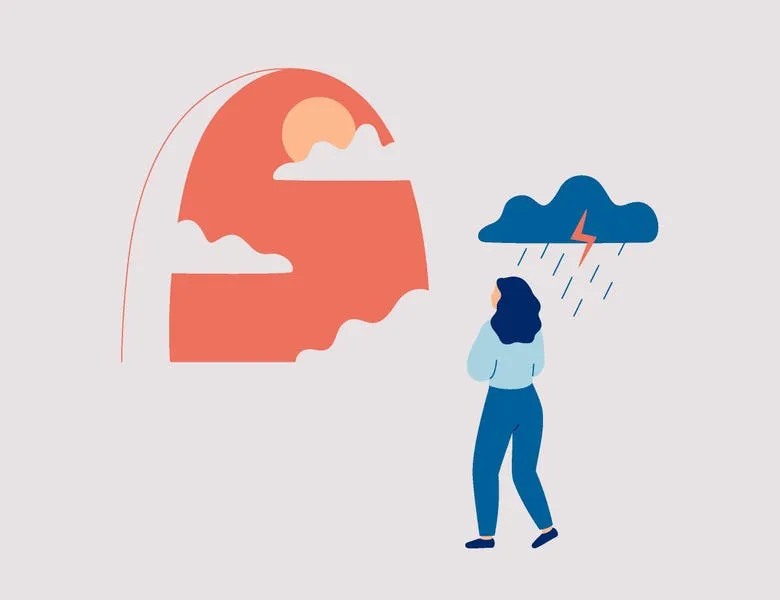Forbes contributors publish independent expert analyses and insights.
Our brains are always on the lookout for the next bad thing that can hurt us. Security, to us, means knowing what's next, having things in hand and comfort in the fact that we can imagine what our tomorrow is going to look like. In that sense, the biggest threat we perceive is one of uncertainty.
Life, as it turns out, is always full of uncertain moments, whether it's a change in jobs, sudden break-ups or relocating to another city. We find ourselves having to cope with and adapt to things we are not prepared for, but must encounter nonetheless.
In these liminal spaces between your old life and the new, being lost can actually be translated into opportunities for exploration and growth. Here are three ways to skillfully navigate these in-between places.
The first instinct when thrown into chaos is to find order. It's the need to go back to familiar ways, to do what you have always done and walk the same roads and work in the same systems you have already learned to navigate long ago.
We do this when we fall for the same kind of people at every turn, make the same kinds of mistakes in our relationships and just keep repeating emotional cycles again and again. You wish to change, but it is hard to do so when you are experiencing the same day that you've lived a hundred times before. But there comes a brief moment when things don't go right, and you are compelled to change.
When faced with a major life transition, you are leaving your previous life behind and are still finding the new one. You get to choose in this moment what this new identity is going to be for you.
A recent study published in Psychological Research shows that even when we're not consciously focused on something, our brains may still be learning patterns from the environment around us -- even the things we don't pay attention to.
This means that during these "in-between" periods of time, even subtle clues and new experiences around us are likely being absorbed and learned, helping us adapt and grow without us even realizing it.
Here's how you can use this to discover a new aspect of your identity. Ask yourself:
See where these questions lead, and then you can start closing the gap between the current you and the person you are becoming, but with the force of intention and clear direction behind it.
When you are in the "in-between," your current assumptions are being tested, and you can no longer trust past expectations. You must upskill, shift your perspective, think around alternatives, experiment with new things and create new beliefs. This is a place of discovery and invention where you can create original ideas in the world; something new and all yours.
A 2022 study published in Neuron found that the brain uses two different ways to explore new options: one driven by excitement for new and novel experiences, and another that weighs how uncertain or unknown an option is before deciding to try it. This suggests that your brain is naturally wired to both seek out fresh ideas with enthusiasm and, at the same time, carefully balance the risks of uncertainty.
When you are lost in life or stuck, you can be free to create a different path in life. Perhaps you're getting to the same places, but via different means. Here's one easy exercise that you can do to put this into practice:
Take this as a chance to leap into the dark and enjoy the ride of the chaos, and come out with something you can be proud of by the end of the day.
The first thing people experience when thrown into an uncertain situation with no clear path forward is anxiety. But when you reframe that anxiety into gentle curiosity, you see options that weren't there before.
A 2024 study published in Frontiers in Human Neuroscience suggests that anxiety and curiosity are two opposing emotional states with the same underlying nervous system. Anxiety causes us to avoid and withdraw when we are uncertain or possibly threatened, whereas curiosity urges us to approach and investigate the unknown. The balance between the two allows us to choose whether to remain secure or to venture a risk of finding out something new.
Researchers describe how particular brain processes collaborate to scan for uncertainty and control emotions, determining whether we should respond with fear or interest. Curiosity triggers motivation and reward pathways in the brain and prompts exploration even when things are dangerous or uncertain, allowing us to learn and develop further.
Significantly, what this research appears to show is that when you redefine anxiety as tender curiosity, you transform a defensive, constrictive feeling into a potent force for creativity and exploration. This change assists in opening up new options and facilitates meeting life's uncertainties with confidence and resilience.
When you feel lost in life and are wading through the liminal spaces -- those in-between periods of being and becoming -- don't forget to take in your surroundings with a sense of wonder.
Make use of this valuable time to find out who you are, uncover new possibilities and take in the universe of opportunities open to you. This place is not an end, but a beginning to growth and change.
